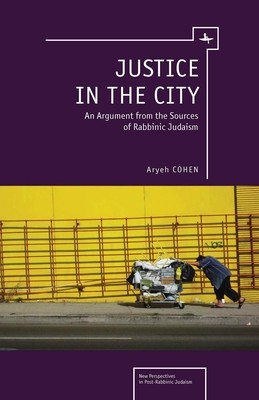
- We will send in 10–14 business days.
- Author: Aryeh Cohen
- Publisher: Academic Studies Press
- ISBN-10: 1936235641
- ISBN-13: 9781936235643
- Format: 15.6 x 23.4 x 1.1 cm, kieti viršeliai
- Language: English
- SAVE -10% with code: EXTRA
Reviews
Description
Justice in the City argues, based on the rabbinic textual tradition, especially the Babylonian Talmud, and utilizing French Jewish philosopher Emmanuel Levinas' framework of interpersonal ethics, that a just city should be a community of obligation. That is, in a community thus conceived, the privilege of citizenship is the assumption of the obligations of the city towards Others who are not always in view--workers, the poor, the homeless. These Others form a constitutive part of the city. The second part of the book is a close analysis of homelessness, labor, and restorative justice from within the theory that was developed. This title will be useful for scholars and students in Jewish studies, especially rabbinic literature and Jewish thought, but also for those interested in contemporary urban issues.
EXTRA 10 % discount with code: EXTRA
The promotion ends in 23d.07:26:01
The discount code is valid when purchasing from 10 €. Discounts do not stack.
- Author: Aryeh Cohen
- Publisher: Academic Studies Press
- ISBN-10: 1936235641
- ISBN-13: 9781936235643
- Format: 15.6 x 23.4 x 1.1 cm, kieti viršeliai
- Language: English English
Justice in the City argues, based on the rabbinic textual tradition, especially the Babylonian Talmud, and utilizing French Jewish philosopher Emmanuel Levinas' framework of interpersonal ethics, that a just city should be a community of obligation. That is, in a community thus conceived, the privilege of citizenship is the assumption of the obligations of the city towards Others who are not always in view--workers, the poor, the homeless. These Others form a constitutive part of the city. The second part of the book is a close analysis of homelessness, labor, and restorative justice from within the theory that was developed. This title will be useful for scholars and students in Jewish studies, especially rabbinic literature and Jewish thought, but also for those interested in contemporary urban issues.


Reviews